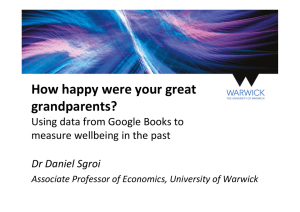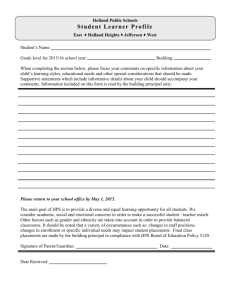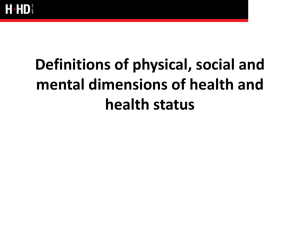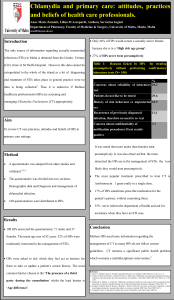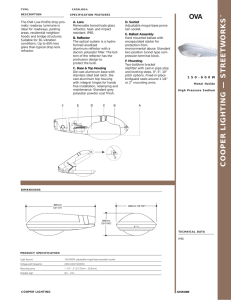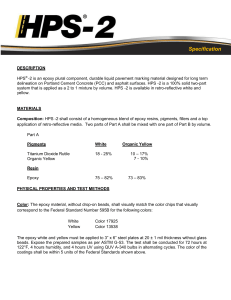Using data from Google Books to measure wellbeing in the past
advertisement
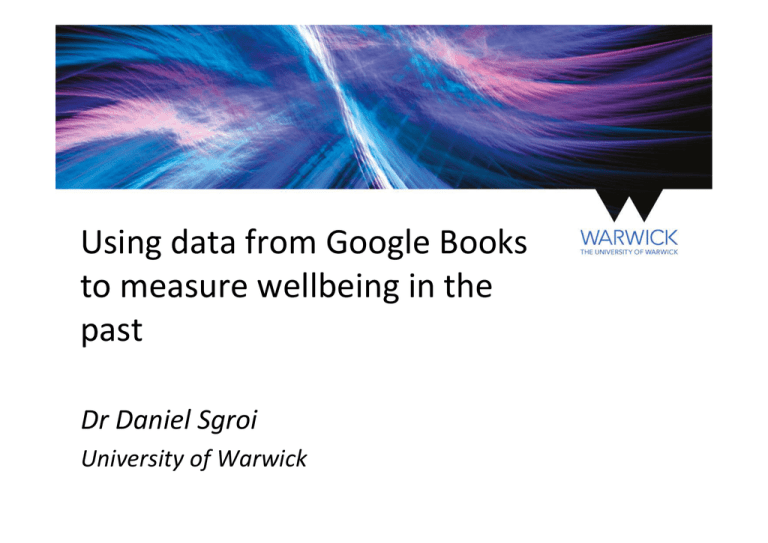
Using data from Google Books to measure wellbeing in the past Dr Daniel Sgroi University of Warwick Scope • Joint work with Eugenio Proto and Thomas Hills An attempt to measure wellbeing in the past (long before survey data existed) • Very multidisciplinary: Economics, History, Psychology, Computer Science (“Big Data”), Literature and Language National Income • National Income Accounting and the birth of macroeconometrics • A similar movement to use national wellbeing data (UN, OECD, national governments) • Measuring GPD in the past: The Maddison Project (from 1AD!) but note the limitations of the super-long run Measuring Happiness • Do we really need historical data? Why? • Wars, epidemics, depressions, matural disasters.. • Now is fine: we can just ask people! • But the past, surely impossible? How can we “go back in time” to ask our great grandparents how happy they are? Google Books! • Big Data: Ngrams! (Viewer) • Sentiment (“valence”) and psychology • Building the HPS index Google Books! Valence correlates heavily with life satisfaction 19722009: Other checks • Words with high valence occur significantly more often at times of higher life satisfaction (1972-2009, Eurobarometer) • Happy people read happy books (not happy-sad) – competitive publishing industry perhaps? Rolling back through time… • For the UK, USA, Germany, France, Italy, Spain • From 1776 to 2009 • Lets look at the UK and France for now • Note censorship/control of publishing in France under occupation The HPS Index: UK The HPS Index: France So now what? • Scale, direction, comparisons… • At the margin what matters more for happiness (health vs money, wars vs natural disasters, etc.) • But avoid super-long run comparisons (for now…) Next steps • Text-analysis on other forms of sentiment, looking at specific words and themes • Refining the method (how language evolves through time) Thank You!
